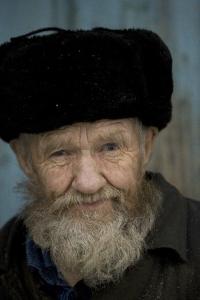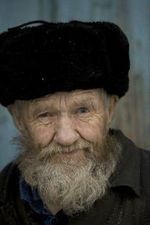Vladimir Popovicovipskievinikyoff
Vladimir Popovicovipskievinikyoff was a Russian military leader during the Russo-Japanese War and WWI. He is also the bearer of what is widely considered to be the worlds most Slavic name.
Early Life[edit | edit source]
Little is known about Popovicovipskievinikyoff's life before enlisting in the army. According to some sources, he had thirty-seven brothers and sisters, all of whom died of cholera. When he was five Popovicovipskievinikyoff developed a taste for alcohol, a late age for most Russian children at this time. His heavy drinking helped him forget about his tragic childhood. Also, he became a good shot with a rifle. Popovicovipskievinikyoff was rumored to have killed a bear in a drunken haze, however the bear turned out to be his father.
Beard[edit | edit source]
Let's get something straight, I don't know shit about this dude but he has a rocking beard![1]
It is believed that his beard was harvested by the pubic hair of Bruce Lee and woven by Leonardo DaVinci. It was later stored in a golden casket and blessed by Jesus of Nazareth, which was due to the Russian government discovering the secret of time travel during the Cold War. However, a group of pirates would go on to steal the beard and use the time machine. They went to the year 3000, where they were pleasured by the Jonas Brothers, who then stole the beard and the time machine and went to the year this dude was born and Nick got impregnated by his father. They had to go back to making bad music but they left the beard with him.
Military Career[edit | edit source]
Russo-Japanese War[edit | edit source]
Popovicovipskievinikyoff quickly rose through the ranks of the Russian army due to his lack of service. During the Russo-Japanese War, he was given command of a regiment stationed in the city of Khabarovsk. Bravely, the young commander was able to hold off a Japanese attack and endure a siege of the city. Though most historians attribute his success at Khabarovsk to the fact that Japanese soldiers often killed themselves when guns were raised against them (this however is a lie, because most historians don't give a fuck about the Russo-Japanese War). When Teddy Roosevelt ended the war in 1905, Popovicovipskievinikyoff was honored with decoration, a promotion to the rank of general, and ten bottles of vodka.
World War I[edit | edit source]
Popovicovipskievinikyoff endured a much less successful campaign in World War I. Russian czar, Nicholas II decided to fight Germany and Austria-Hungary simultaneously. Popovicovipskievinikyoff was faced with the daunting task of combating the German offensive. Popovicovipskievinikyoff's brilliant war strategy was to get his soldiers drunk to the point where they could barely stand, if a soldier fell or passed out, he was shot. Unfortunately, Popovicovipskievinikyoff's Russian offensive was ineffective because Russia at this time was a backwards nation with a disposable population and little modern technology. His drunken troop's were no match for Germans with machine guns. Popovicovipskievinikyoff's career ended when Nicholas decided to replace him as commander to rally the troops strength.
Death[edit | edit source]
When Vladimir Lenin, Russia's secret leader overthrew the facade monarchy and founded the Soviet Union, Popovicovipskievinikyoff was overjoyed. He gathered his friends and went to a brothel in Moscow. That night Popovicovipskievinikyoff consumed nearly four times the human capacity for alcohol, a staggeringly high amount even for a Russian. A Bolshevik knew he had been a general in the czar's regime, but did not know he was a communist. Popovicovipskievinikyoff was shot forty times and died three hours later.
Family History[edit | edit source]
The Popovicovipskievinikyoff accumulated a number of Slavic suffixes to their surname in the days of the Roman Empire. A Slovenian named Popo realized one day that every Slavic language was almost identical, he decided to add a new suffix to each generation of his descendants and share this dream with his children. By the time Popo's family reached Siberia their surname had accumulated nine suffixes. They decided this was enough.
See Also[edit | edit source]
- ↑ This is a lie. Lying is a common sport in Russia.

